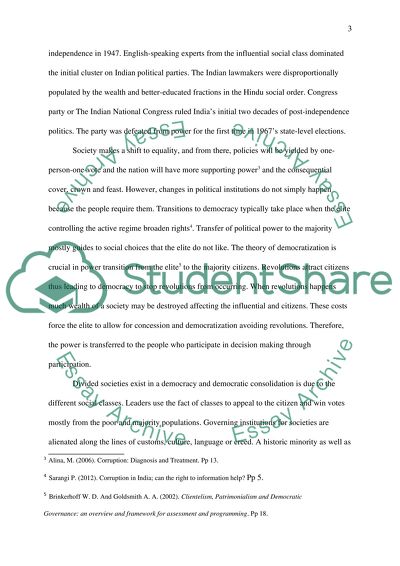Cite this document
(“The Struggle for Democracy and Democratic Consolidation Essay”, n.d.)
Retrieved from https://studentshare.org/history/1448964-the-struggle-for-democracy-and-democratic-consolidation
Retrieved from https://studentshare.org/history/1448964-the-struggle-for-democracy-and-democratic-consolidation
(The Struggle for Democracy and Democratic Consolidation Essay)
https://studentshare.org/history/1448964-the-struggle-for-democracy-and-democratic-consolidation.
https://studentshare.org/history/1448964-the-struggle-for-democracy-and-democratic-consolidation.
“The Struggle for Democracy and Democratic Consolidation Essay”, n.d. https://studentshare.org/history/1448964-the-struggle-for-democracy-and-democratic-consolidation.


